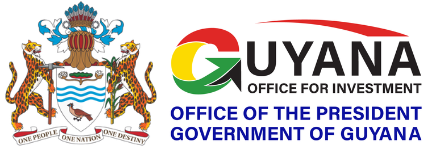To start a business in Guyana, investors must comply with the administrative procedures established under the relevant business acts. Compared to a sample of other countries in the region, the procedures and time required to start a business are low compared to the mean, and relatively consistent with the median. Table 3.11 shows data from the World Bank Doing Business Guide 2005. This section provides an overview of the most salient aspects of this process. More details on business start-up are found on GO-Invest’s website.
Forms of Ownership
Forms of business ownership include single ownership (i.e., sole proprietorship), partnership (in any form), and company (incorporated businesses both domestic and foreign). No regulations govern the proportion of ownership by partners or joint ventures in a partnership. Rather, the individual concerned has the right to choose whether to invest alone or to have partners, and to determine the form of that relationship. With regards to a private incorporated company, there must be at least 1 and no more than 20 shareholders. There are no restrictions on the nationality of shareholders. The company’s capital structure may comprise more than one class of shares including redeemable preference shares, with such conditions as the articles may provide. Shares in a company are without nominal or par value.
The Business Names (Registration) Act and the Partnership Act are the governing regulatory documents for single ownerships, partnerships, and companies. The Companies Act (9/91) governs the registration of an incorporated business. Though three different acts address the different business types, the government office for business registration of any kind is the Deeds Registry in Georgetown.
Incorporation, Registration and Fees
The process for incorporating a business is relatively straightforward, and takes, on average, approximately 8 days. Incorporated or foreign firms may wish to engage a competent lawyer to facilitate the process and save time. Registering a foreign company requires additional steps. Appendix 3 provides a summary of the information and documents required to incorporate and register a foreign or “external” company in Guyana, as well the pertinent fees.
Exit
An investor (foreign or domestic) is free to exit from a venture in accordance with the law. Unlike other Caribbean jurisdictions, the law relating to the liquidation of companies is embodied in the Companies Act. Under this Act, a company may be wound up either by an order of the Court or voluntarily. In bankruptcy proceedings, additional obligations may be imposed on directors, managers or principal officers of an external company who reside in Guyana.
Taxation
All businesses operating in Guyana—except for those benefiting from tax-related investment incentives—are liable to taxation. As elsewhere, taxes generally fall into two broad categories, direct and indirect. Direct taxes include income tax and corporation tax, while indirect taxes include property tax, capital gains tax, consumption tax (to be replaced with a VAT) and a number of product and service related taxes (e.g. excise taxes, travel taxes, hotel accommodation tax, entertainment tax, telephone tax, etc), many of which will also be replaced by the VAT. Table 3.12 provides a summary of the taxes most likely to impact investors.
For further information on these and other regulations check out our “Regulatory Framework” page

